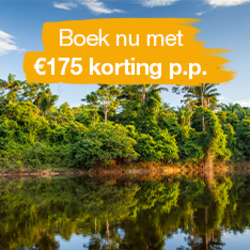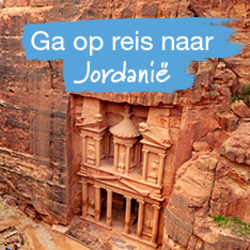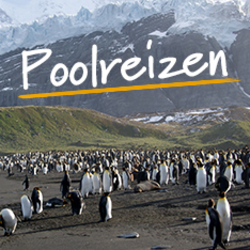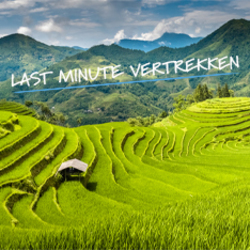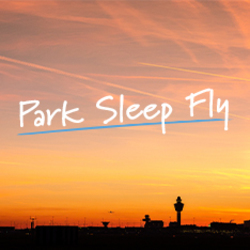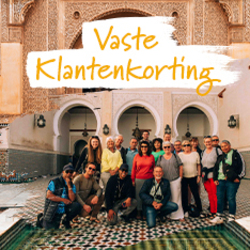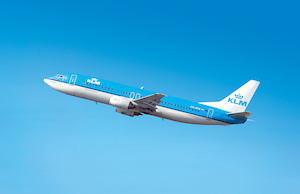Profiteer t/m 12 mei
BekijkActivities
- Walking & Trekking
- Point-to-Point
- — Classic camping trek through rhododendron forests to the Singalila Ridge — See four of the five highest peaks on Earth: Everest, Kanchenjunga, Lhotse and Makalu — Explore Gangtok, the capital of Sikkim — Drive through tea plantations and visit a tea estate — Stay in Martam, a traditional Sikkimese village
Food
-
1
Start Delhi
The group flight will arrive into Delhi in the morning and we will transfer to our hotel. Those who have made their own flight arrangements will join us at the hotel during the day. You are free today to explore Delhi or rest after your flight; rooms may not be available until noon but it is often earlier than this. Your leader will do a trip briefing today and you will need passport photographs for the various permits and check posts so please ensure you pack 4 photographs. Comfortable Hotel - Hotel Jaypee Siddharth (or similar)
-
1
Start Delhi
The adventure begins at our hotel in Delhi. You are free today to explore the city or rest after your flight; rooms may not be available until noon but it is often earlier than this. Our leader holds a trip briefing today. You need passport photographs for the various permits and checkposts, so please ensure you bring four. Accommodation: Hotel Deventure (or similar)
-
2
Fly to Bagdogra; drive to Gangtok
Transfer to the domestic airport terminal for the flight to Bagdogra. On arrival at Bagdogra, we join our vehicles and drive to Gangtok. The road soon leaves the plains behind and at Sevoke we cross the Teesta River and start to climb into the Doar Hills. At Rangpo we take a break as we enter Sikkim. Border formalities take time and you will need your passport and one photograph. Climbing further, we finally reach Gangtok, the capital of Sikkim set at an elevation of 1,680m. The drive will take about 5 hours (125km).Standard Hotel
-
2
Fly to Bagdogra; drive to Gangtok
We transfer to the domestic airport terminal and fly to Bagdogra. On arrival, we join our vehicles and drive to Gangtok. The road soon leaves the plains and at Sevoke we cross the Teesta River and climb into the Doar Hills. At Rangpo, we take a break as we enter Sikkim. Border formalities take time – you need your passport and one photograph. Climbing further, we reach Gangtok, the capital of Sikkim, set at an elevation of 5,510ft (1,680m). The drive usually takes about five hours (78mi/125km) but has been known to take up to 10 hours in instances where landslides have occurred from heavy rain along the route. Your leader will advise if your journey is likely to be affected. Accommodation: Netuk House, Gangtok (or similar)
-
3
Drive to Martam village visiting Rumtek Monastery en route
Gangtok is set among the hills and, on a clear day, we can see Kanchenjunga from the hotel. We have the morning for exploration. The Mall Road is the centre of Gangtok and the nearby indoor vegetable market makes for an interesting wander. Either explore Gangtok solo or your leader can take you to see some of the sights. About an hour’s walk from the hotel there is the small Enchey monastery. Overlooking the town, it was founded in 1840 by Lama Drubthob Karpo and was rebuilt in 1908 by the 10th chogyal (king) of Sikkim. From the monastery, walk back to town via the Flower Show, a small exhibition of orchids and other local flowers. There is a handicraft centre close by, which is a government enterprise offering community training in traditional handicrafts such as carpet weaving and wood carving. After lunch, we have an hour’s drive to Rumtek monastery. Founded in the mid-1700s by the 12th Karmapa, it fell into ruins. When the 16th Karmapa came from Tibet, he rebuilt the monastery as the main seat in exile of the Karmapa sect. It is the largest monastery in Sikkim and contains a golden stupa with the remains of the 16th Karmapa. A 30-minute drive brings us to Martam, a scenic Himalayan village in a quiet corner of East Sikkim. Accommodation: Martam Resorts (or similar)
-
3
Drive to pretty Martam village visiting the Rumtek Monastery en route
Gangtok is set amongst the hills and on a clear day we can see Kanchenjunga from the hotel. We have the morning for exploration. The Mall Road is the centre of Gangtok and the close by indoor vegetable market makes for an interesting wander. You can either explore Gangtok on your own or your leader will take you to see some of the sights. About an hour’s walk from the hotel on a quiet road there is the small Enchey monastery. Overlooking the whole town, Enchey was founded in 1840 by Lama Drubthob Karpo and was rebuilt in 1908 by the 10th Chogyal (king) of Sikkim. From the monastery you can walk back to town via the Flower Show, a small exhibition of orchids and other local flowers. There is a Handicraft Centre close by which is a government enterprise offering community training in traditional handicrafts such as carpet weaving and wood carving.After lunch we have an hour’s drive to Rumtek monastery. Founded in the mid 1700’s by the 12th Karmapa it fell into ruins. When the 16th Karmapa came from Tibet he rebuilt the monastery as the main seat in exile of the Karmapa sect. It is the largest monastery in Sikkim and contains a Golden Stupa with the remains of the 16th Karmapa. A half hours’ drive brings us to Martam, a scenic Himalayan village located in a quiet corner of East Sikkim.Standard Hotel
-
4
Sightseeing in Martam
We spend today in the pretty village of Martam, which was known for producing butter and other dairy products (mar means butter and tem means spread). The population is about 10,000, made of Bhutia and Nepali communities. In the morning, we go for a hike around the village. We can visit the interesting Nyingma Institute, which provides education in higher Buddhist studies and philosophy to many monks. There is also another small monastery and a Krishna Mandir in the village. We return to our hotel for lunch and the afternoon is free. Accommodation: Martam Resorts (or similar)
-
4
Sightseeing the pretty village of Martam
We spend today in the pretty village of Martam which was known for producing butter and other dairy products (‘mar’ means butter and ‘tem’ means spread). The population of Martam is about 10,000 made up of the Bhutia and Nepali communities. In the morning we go for a hike around the village. We can visit the interesting Nyingma Institute, which provides education in higher Buddhist studies and philosophy to many monks. The Nyingma sect of Tibetan Buddhism was the first Tibetan Buddhist sect founded in the 8th century. There is also another small monastery and a Krishna Mandir in the village. We return to our hotel for lunch and the afternoon is free. Standard HotelDistance covered: 6 km / 4 milesActivity (hours): 4-5
-
5
Drive to the famous hill station of Darjeeling
Leaving Sikkim we drive on to Darjeeling. The road winds all the way to the Testa River, where we enter the state of West Bengal. It then weaves back up into the hills to Darjeeling. We arrive by lunchtime and this afternoon we explore one of the most famous hill stations of the British Raj. Originally belonging to the Chogyals (Kings) of Sikkim, then annexed by the Gurkhas, the British East India Company gained control of the region in the early 1800's and returned it to Sikkim rule. Stumbling across Dorje Ling Monastery, situated on a quiet forested ridge, two British soldiers thought it would make a great location for a sanatorium and with the permission of the King of Sikkim a hill station was born. Today Darjeeling is a bustling town but the Mall still retains its Victorian era charm. Our stay will include a visit to the Himalayan Mountaineering Institute founded by Tenzing Norgay and where many of famous Sherpa climbers trained in mountaineering skills. There are interesting displays and photographs from some of the early Mount Everest climbs. Today’s drive is 80km and will take approximately 4 hours. Standard Hotel
-
5
Drive to Darjeeling and visit the Himalayan Mountaineering Institute
Leaving Sikkim, we drive to Darjeeling. The road winds all the way to the Testa River, where we enter the state of West Bengal. It then weaves back into the hills to Darjeeling. We arrive by lunchtime; this afternoon, we explore one of the most famous hill stations of the British Raj. The region originally belonged to the chogyals of Sikkim, before it was annexed by the Gurkhas. By the early 1800s, it was in the control of the British East India Company who returned it to Sikkim rule. Stumbling across Dorje Ling Monastery, situated on a quiet forested ridge, two British soldiers thought it would make a great location for a sanatorium and with the permission of the Sikkim king, a hill station was born. Today, Darjeeling is a bustling town but the Mall still retains Victorian charm. Our stay includes a visit to the Himalayan Mountaineering Institute, founded by Tenzing Norgay and where many famous Sherpa climbers trained in mountaineering skills. There are interesting displays and photographs from some of the early Everest climbs. Today’s drive is 50mi (80km) and will take approximately four hours; however, there may be delays due to landslides caused by heavy rain. Your leader will advise if this is the case. Accommodation: Sinclairs Hotel (or similar)
-
6
Take a toy train ride, travel on to Rimbik the gateway to our trek and follow a short trail to our first campsite
On a clear day its worth getting up early for the beautiful sunrise views of Kanchenjunga from the roof of our hotel. After breakfast we have a 40 minute ride on the famous Toy Train to Ghoom (Subject to running. See day 13 for another opportunity if not running today) The train chugs its way out of Darjeeling, stopping on the way to take on water and to allow passengers to photograph the famous Batasia Loop. At Ghoom we meet our cars and drive for around 4 hours to Rimbik, the trailhead of our trek at 2,286m. We have a short (45 minute) gentle uphill walk through magnificent rhododendron forests (a blaze of reds in spring) to our camp at Manedara, where we spend our first night under canvas. As we approach the village we have stunning views of Kabru Dome and Kabru South peaks.Full-service camp (sleeping altitude 2,450m)
-
6
Ride the toy train; drive to Rimbik and trek to Manedara
On a clear day, wake early for beautiful sunrise views of Kanchenjunga from the roof of our hotel. After breakfast, we have a 40-minute ride on the toy train to Ghoom (subject to running, see Day 13 for another opportunity if not running today). The train chugs out of Darjeeling, stopping to take on water and to allow passengers to photograph the Batasia Loop. At Ghoom, we meet our cars and drive for around four hours to Rimbik, the trailhead of our trek at 7,500ft (2,286m). We have a 45-minute gentle uphill walk through magnificent rhododendron forests (a blaze of reds in spring) to our camp at Manedara, where we spend our first night under canvas. As we approach the village, we have stunning views of Kabru Dome and Kabru South peaks. Accommodation: Full-service camp – sleeping altitude: 8,040ft (2,450m)
-
7
Trek through beautiful forest, descend to Gurdum Khola then up to Gurdum village
Today we start our trek with an easy trail passing small houses and fields. It is about 2hrs gradual walk through beautiful forest to Shepi village. We then descend to the Gurdum Khola, which we cross by bridge and after a steep 1 hour climb to Gurdum village we will arrriv at our camp for the evening. Full-service Camping (sleeping altitude 2,400m)
-
7
Trek through forest and villages to Gurdum
Today we start our trek with an easy trail passing small houses and fields. It is about two hours’ gradual walk through beautiful forest to Shepi village. We then descend to the Gurdum Khola river, which we cross by bridge and after a steep one-hour climb to Gurdum village, we arrive at our camp for the evening. Accommodation: Full-service camp – sleeping altitude: 7,875ft (2,400m)
-
8
Final ascent through forest to the Singalila Ridge the highest point of our trek
A fairly tough but rewarding day as we finish our ascent to the Singalila Ridge. The trail climbs steeply in places until we emerge at a forest clearing. From here it undulates through rhododendron forest to the ridgetop at Sandakhphu (3,636m), the highest point of our trek. On a clear day the climb is well worth the effort as we are rewarded with a magnificent Himalayan panorama. The views from here are truly amazing – the towering slopes of Kanchenjunga lie ahead and Everest, Lhotse and Makalu now come into view in the distance. After lunch at Sandakhphu it is a gradual walk on a rough jeep track to our camp at Chandu.Full-Service Camping (sleeping altitude 3,570m)
-
8
Trek through forest ascending through Sandakhphu to Chandu
It’s a fairly tough but rewarding day as we finish our ascent to the Singalila Ridge. The trail climbs steeply in places until we emerge at a forest clearing. From here, it undulates through rhododendron forest to the ridgetop at Sandakhphu (11,929ft/3,636m), the highest point of our trek. On a clear day, the climb is well worth the effort as we are rewarded with a magnificent Himalayan panorama. The views from here are truly amazing – the towering slopes of Kanchenjunga lie ahead and Everest, Lhotse and Makalu come into view in the distance. After lunch at Sandakhphu, it is a gradual walk on a rough jeep track to our camp at Chandu. Accommodation: Full-service camp – sleeping altitude: 11,715ft (3,570m)
-
9
Trekking along the Singalila Ridge taking in the Himalayan panoramas, including Kanchenjunga, Makalu, Everest and Lhotse
We are now on the Singalila Ridge, the border between Nepal and India which means at times we are walking in each country. This is a great day to enjoy the views. The trail undulates following the ridge through chestnut, oak and silver fir trees with commanding panoramic views of the Himalaya all day. Dwarf rhododendrons and primulas colour the landscape in spring. Tonight we have a spectacular wild camp at Sabargam. The views from here are sublime and we hope to see a magnificent sunset and sunrise over Kanchenjunga, Everest, Lhotse and Makalu and a whole host of other Himalayan peaks. Full-service Camping (sleeping altitude 3,536m)
-
9
Trekking along the Singalila Ridge to Sabargam taking in Himalaya views
We are now on the Singalila Ridge, the border between Nepal and India, which means at times we are walking in each country. This is a great day for views. The trail undulates, following the ridge through chestnut, oak and silver fir trees with commanding panoramic views of the Himalaya all day. Dwarf rhododendrons and primulas colour the landscape in spring. Tonight, we have a spectacular wild camp at Sabargam. The views from here are sublime and we hope to see a magnificent sunset and sunrise over Kanchenjunga, Everest, Lhotse and Makalu and a whole host of other Himalayan peaks. Accommodation: Full-service camp – sleeping altitude: 11,601ft (3,536m)
-
10
Trek further along the Singalila Ridge with breathtaking views of Kanchenjunga on a clear day
A full day trekking along an undulating trail to the end of the ridge at Phalut where we descend to Samaden. On a clear day we get breathtaking views of Kanchenjunga as we continue along the ridge. The Everest range is further away but Kanchenjunga rears up over us. Phalut is at 3,600m and just behind the lodge there is a viewpoint where we are surrounded by Himalayan giants. The trail down to Samaden is glorious and takes us through forests of oak, conifers, pine and rhododendrons, an explosion of colour in spring. We camp tonight in the village of Samaden (2,480m), a beautiful spot in a small settlement with excellent views.Full-service Camping (sleeping altitude 2,480m)
-
10
Trek to the end of the Singalila Ridge at Phalut then descend to Samaden
We enjoy a full day of trekking along an undulating trail to the end of the ridge at Phalut, where we descend to Samaden. On a clear day, we get breathtaking views of Kanchenjunga as we continue along the ridge. The Everest range is further away but Kanchenjunga rears up over us. Phalut is at 11,810ft (3,600m) and just behind the lodge there is a viewpoint where we are surrounded by Himalayan giants. The trail down to Samaden is glorious and takes us through forests of oak, conifers, pine and rhododendrons, an explosion of colour in spring. We camp tonight in Samaden, a small settlement with excellent views. Accommodation: Full-service camp – sleeping altitude: 8,135ft (2,480m)
-
11
Trek through a collection of small settlements inhabited by different cultures to Rimbik a large Sherpa village
Our final trek winds through a collection of small settlements inhabited by Rais, Sherpas and Tamangs to Ramman, where terraced fields and villages dot the landscape. We descend along a jeep track to Sri khola for lunch after which we cross a suspension bridge and continue for another 2.5 hours along a road, passing through more villages en route to Rimbik (2,286m), a large Sherpa village set amongst the forest landscapes of the Singalila National Park. We stay in a small lodge with great views across the valley.Basic Hotel (sleeping altitude 2,286m)
-
11
Trek through small settlements to Rimbik
Our final trek winds through a collection of small settlements (inhabited by Rais, Sherpas and Tamangs) to Ramman, where terraced fields and villages dot the landscape. We descend along a jeep track to Sri Khola for lunch, after which we cross a suspension bridge and continue for another 2hr 30min along a road, passing through more villages to Rimbik, a large Sherpa village among the forest landscapes of Singalila National Park. We stay in a small lodge with great views across the valley. Accommodation: Rimbick Lodge (guest house)– sleeping altitude: 7,500ft (2,286m) Please note, the guest house is a basic home-stay property. Although all bedrooms offer attached bathrooms (including toilets), those with shower facilities are limited and some bedrooms may only provide a sink and "bucket" wash option.
-
12
Drive to Darjeeling visiting a tea estate en route to learn how this popular drink is produced
Today we drive back to Darjeeling along a road that winds up and down ridges through picturesque landscape. En route we stop to visit a tea estate and learn how this most famous of drinks is grown and processed. We will arrive in Darjeeling mid afternoon and the rest of the day is free to further explore this historic hill station. Our hotel is close to the Mall, which is a great place to wander in the evening.Standard Hotel
-
12
Drive to Darjeeling, visiting a tea estate en route
Today we drive back to Darjeeling along a road that winds up and down ridges through picturesque landscapes. En route, we visit a tea estate and learn how this famous drink is grown and processed. We arrive in Darjeeling midafternoon and the rest of the day is free to further explore this historic hill station. Our hotel is close to the Mall, which is a great place to wander in the evening. Accommodation: Sinclairs Hotel (or similar)
-
13
Morning to continue exploring Darjeeling then drive to Siliguri where we catch the overnight train to Calcutta
We have the morning to explore further. If we missed the ride on the famous Toy Train and Ghoom monastery, there is time this morning. In the afternoon we set off for the drive to Siliguri (2-3 hrs) where we board the overnight train to Calcutta (Kolkata). Train times in India change regularly, although it usually departs at around 8pm or 9pm. Overnight Sleeper TrainOvernight Sleeper Train
-
13
Morning to explore Darjeeling, drive to Siliguri, overnight train to Kolkata
We have the morning to explore further. If we missed the ride on the toy train and Ghoom monastery, there is time this morning. In the afternoon, we set off for the drive to Siliguri (two to three hours) where we board the overnight train to Kolkata. Train times in India change regularly, although it usually departs around 8pm or 9pm. Accommodation: Overnight sleeper train
-
14
Arrive Calcutta; free time to explore
We arrive in Calcutta (Kolkata) in the early hours of the morning and have the day to explore this fascinating city. Once the capital of British India, Calcutta has had a turbulent past. It was central to the struggle for Indian independence and thousands of Bengalis refugees came here at the start of the 1900’s. It is a city of striking contrasts and the unusual sights, pungent smells and the cacophony of sounds of the country’s second largest city are an experience unique to India. If you would rather not navigate Calcutta alone, your leader can usually arrange a short (1/2hr) guided city tour for you (pay locally).Standard Hotel
-
14
Arrive Kolkata; free time to explore
We arrive in Kolkata in the early hours of the morning and have the day to explore this fascinating city. Once the capital of British India, Kolkata has a turbulent past. It was central to the struggle for Indian independence and thousands of Bengali refugees came here at the start of the 1900s. It is a city of striking contrasts and the unusual sights, pungent smells and cacophony of sounds are an experience unique to India. If you would rather not navigate Kolkata alone, your leader can usually arrange a short guided city tour for you (pay locally). Accommodation: Hotel Peerless Inn (or similar)
-
15
End Calcutta
Those on the flight inclusive package will depart for London this morning for the daytime flight back to London; Land Only arrangements will finish after check-out from the hotel.
-
15
End Kolkata
The adventure ends in Kolkata after breakfast. If you’d like a little more adventure, however, consider joining our five-day Golden Triangle extension. Encompassing Delhi, Jaipur and Agra, the trip is a whirlwind of culture, taking in the Taj Mahal, Red Fort of Akbar and much more.






